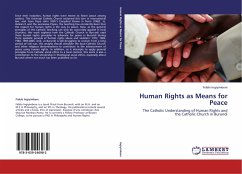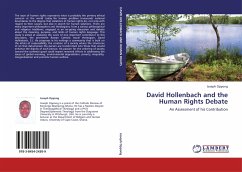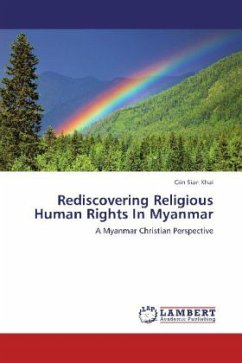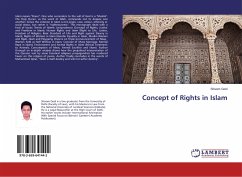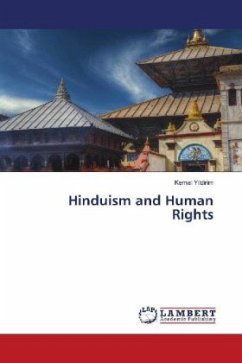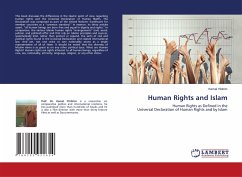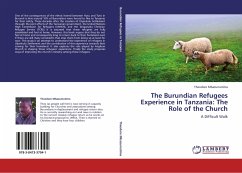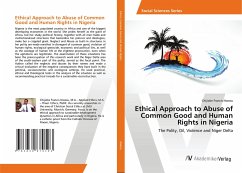Since their inception, human rights were meant to foster peace among nations. The Universal Catholic Church endorsed this turn in international law, and from Pope John XXIII s Encyclical Pacem in Terris (1963), to Vatican II and the successive Popes, the teaching has constantly been that the respect for human rights is the way to peace. Now, as the general principles of the Catholic teaching can only be concretely applied in local churches, this work explores how the Catholic Church in Burundi used these human rights principles to advocate for peace in Burundi during three symbolic periods of human rights abuse and violation: 1972, 1983-1984, 1993-2005. And, as Burundi is still struggling to recover from a long period of civil war, this analysis should stimulate the local Catholic Church and other religious denominations to contribute to the advancement of peace using human rights. In addition, as it attempts to apply general principles from Catholic social ethics to a local context, this work is also a contribution to the scholarship in theological social ethics, especially about Burundi where not much has been published so far.
Bitte wählen Sie Ihr Anliegen aus.
Rechnungen
Retourenschein anfordern
Bestellstatus
Storno

